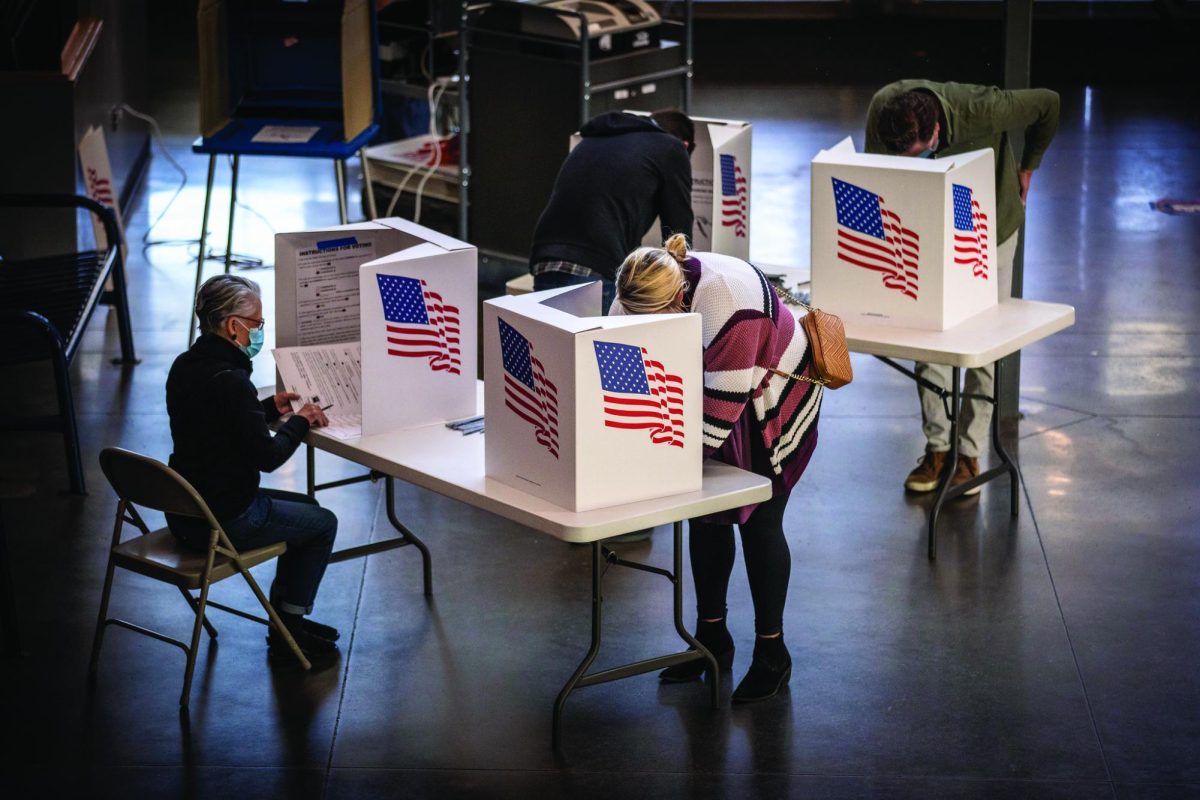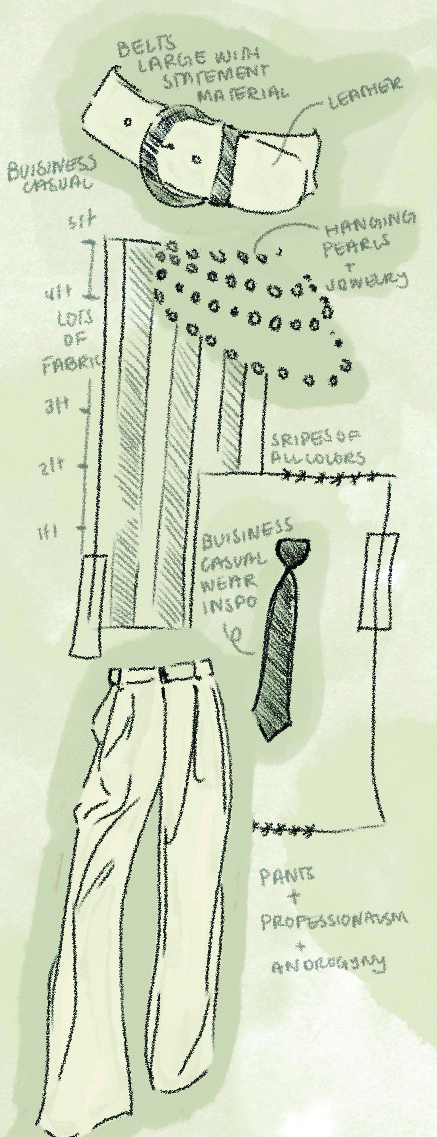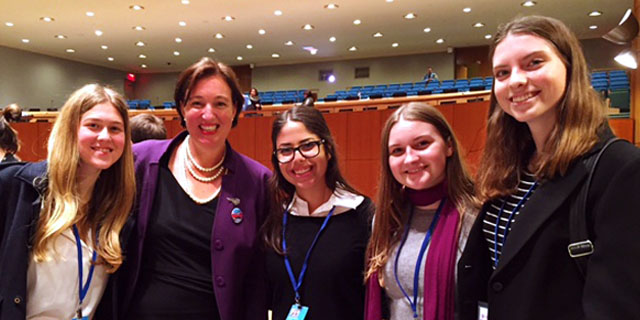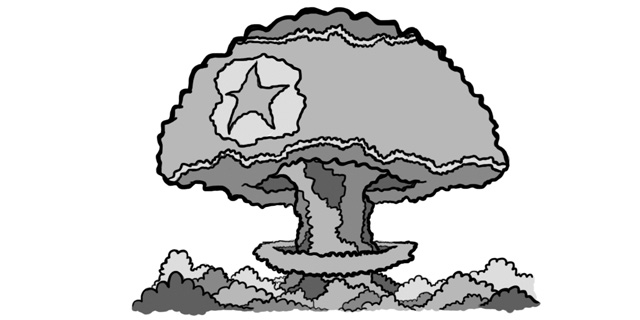
Through the Iran Nuclear Deal, an understood contract between Iran and other nations concerning its nuclear energy dealings, Iran, after two years of struggle, has agreed to several limitations regarding nuclear production. Recently, Israel and Saudi Arabia as well as Republican legislators in the United States Congress, have been attempting to make the deal more beneficial for them, slowing down the entire process.
On Sep. 27, 2013, U.S. President Barack Obama broke the 34-year silence between Iran and the United States by having a direct telephone conversation with Iranian President Hassan Rouhani. Then, the two countries finally began productively discussing Iran’s nuclear usage. Later in November of 2013, the United Nations and Iran agreed on a plan for the future including inspections in Iran’s nuclear plants, setting a positive tone for the rest of their communication. The countries involved in the talks were, and still are, Iran, the world powers (the United States, Russia, China, The United Kingdom and France) and Germany. The goal of the talks was to convince Iran to shrink parts of its immense nuclear infrastructure in one year. However, after the year ran out, the world powers and Germany failed to persuade Iran, so, on Nov. 24, 2014, the US extended the deadline for the talks for seven additional months. Obama has long cited this agreement as a major goal.
The United States and its western allies hoped to implement a strict set of guidelines for Iran to follow concerning nuclear usage. These limits would, in theory, block the country from manufacturing the amount of fuel needed to build and fuel a nuclear weapon. Iran instead believed that it should be able to have complete freedom over their nuclear production for energy and medical use. Their goal in these talks was to lift restrictions put upon the nation for oil transportation and investments in global economic markets.
On April 2, 2015, the negotiating countries announced that Iran had agreed to a 15-year limitation plan for their nuclear usage. According to the accord, Iran will decrease their working centrifuges by two-thirds, not enrich uranium that exceeds 3.67%, and reduce their stock of low-enriched uranium to 300 kilograms (from 10,000 kg). In addition, the International Atomic Energy Agency (IAEA) will have complete access to all of Iran’s nuclear facilities in order to maintain transparency.
Before the agreement was reached, on Tuesday, March 3, 2015, the Israeli Prime Minister, Benjamin Netanyahu, spoke to both the United State’s House of Representatives and the Senate. He conveyed his concern for the nuclear deal and expressed his view that it will encourage Iran’s nuclear dependency, not diminish it. He explained that he would like to see Iran’s entire nuclear program shut down.
“This deal won’t be a farewell to arms,” Netanyahu said in his speech to the U.S. government. “It would be a farewell to arms control. And the Middle East would soon be crisscrossed by nuclear tripwires. A region where small skirmishes can trigger big wars would turn into a nuclear tinderbox.”
According to The New York Times, Netanyahu is worried that a deal approved by the UN, such as their current draft, will only cause an arms race among countries in the region. However, Obama pointed out in his response to the speech on March 3, that this all-or-nothing stance would serve only to hurt the talks.
“If we’re successful in negotiating, then, in fact, this will be the best deal possible to prevent Iran from obtaining a nuclear weapon,” Obama explained in a speech on March 3 at the White House. “Nothing else comes close. Sanctions won’t do it. Even military action would not be as successful as the deal that we have put forward.”
Netanyahu’s speech divided the U.S. legislatures; the Democratic Party was insulted by his opinion, while the Republican Party greeted him with enthusiasm and agreement. In fact, The New York Times reports that the Speaker of the House, Republican John A. Boehner was the one who orchestrated the gathering of government officials. He hoped to show how many opposed the nuclear deal.
Once again, the G.O.P. demonstrated their disagreement with the proposed deal on March 9, when 47 U.S. Republican legislators wrote, signed, and sent a letter to the Iranian government. It contained a warning about the government’s potential contract with Obama, explaining that because of the unique workings of the American government, the deal could change in the next few years without Iranian consent.
“The next president could revoke such an executive agreement with the stroke of a pen and future Congresses could modify the terms of the agreement at any time,” it states.
In reaction to the letter, Iran’s foreign minister, Mohammad Javad Zarif, expressed his distrust and disgust towards American propaganda politics.
“It is very interesting that while negotiations are still in progress and while no agreement has been reached, some political pressure groups are so afraid even of the prospect of an agreement that they resort to unconventional methods, unprecedented in diplomatic history,” Zarif said in a statement. The White House also communicated their dissatisfaction with the letter and Secretary of State John Kerry criticized it on Mar. 11 in a speech, believing that the senators had undercut U.S. foreign policy.
Ayatollah Khamenei, the Supreme Leader of Iran, has consistently expressed skepticism toward the deal. However, after the letter, his doubt increased because, according to CNN, he saw the letter as pure American propaganda, aimed at progressing the opposition’s agenda. Additionally, he published an online statement that states that he saw the letter as “a sign of a decline in political ethics and the destruction of the American establishment from within.”
The U.S. has reached its goal of assuring that, under these supervised rules, Iran would not be able to produce a nuclear weapon in under a year. Although the main framework of the deal is completed, some key details concerning the financial sanctions on Iran have yet to be finalized and will be completed by June 30.
On April 9, at an event to promote National Nuclear Technology Day in the capital, President Hassan Rouhani warned “We will not sign any deal unless on the very first day of its implementation all economic sanctions against Iran are lifted all at once.”












